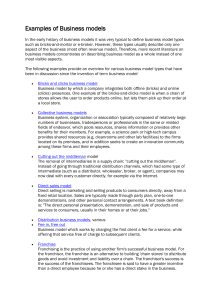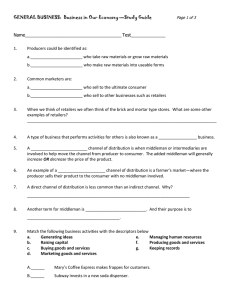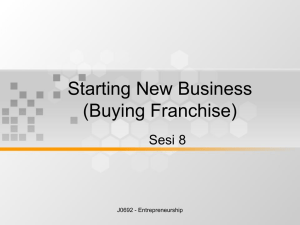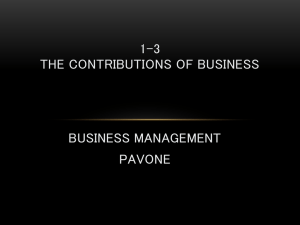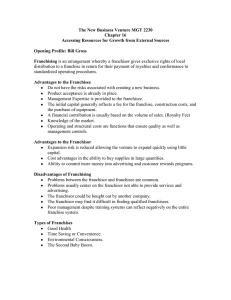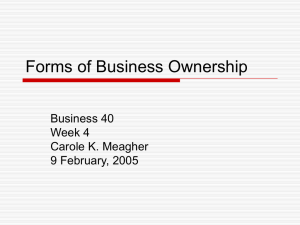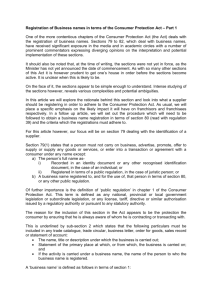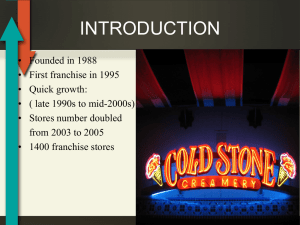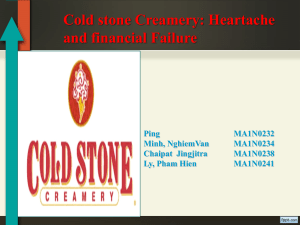Examples of Business models
advertisement
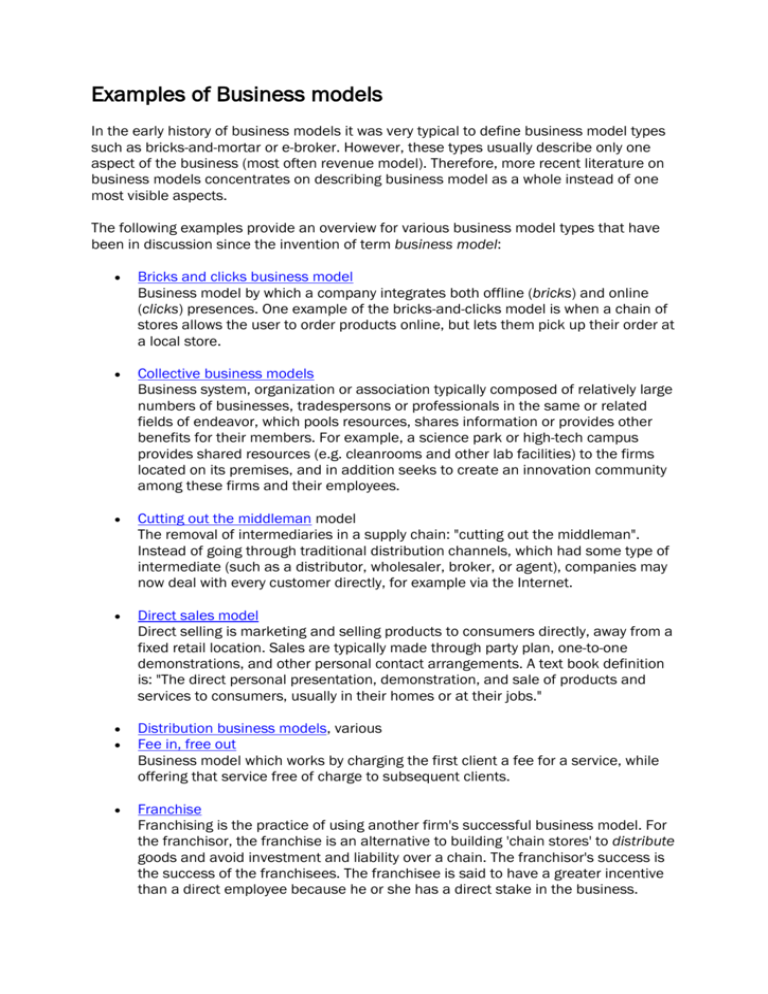
Examples of Business models In the early history of business models it was very typical to define business model types such as bricks-and-mortar or e-broker. However, these types usually describe only one aspect of the business (most often revenue model). Therefore, more recent literature on business models concentrates on describing business model as a whole instead of one most visible aspects. The following examples provide an overview for various business model types that have been in discussion since the invention of term business model: Bricks and clicks business model Business model by which a company integrates both offline (bricks) and online (clicks) presences. One example of the bricks-and-clicks model is when a chain of stores allows the user to order products online, but lets them pick up their order at a local store. Collective business models Business system, organization or association typically composed of relatively large numbers of businesses, tradespersons or professionals in the same or related fields of endeavor, which pools resources, shares information or provides other benefits for their members. For example, a science park or high-tech campus provides shared resources (e.g. cleanrooms and other lab facilities) to the firms located on its premises, and in addition seeks to create an innovation community among these firms and their employees. Cutting out the middleman model The removal of intermediaries in a supply chain: "cutting out the middleman". Instead of going through traditional distribution channels, which had some type of intermediate (such as a distributor, wholesaler, broker, or agent), companies may now deal with every customer directly, for example via the Internet. Direct sales model Direct selling is marketing and selling products to consumers directly, away from a fixed retail location. Sales are typically made through party plan, one-to-one demonstrations, and other personal contact arrangements. A text book definition is: "The direct personal presentation, demonstration, and sale of products and services to consumers, usually in their homes or at their jobs." Distribution business models, various Fee in, free out Business model which works by charging the first client a fee for a service, while offering that service free of charge to subsequent clients. Franchise Franchising is the practice of using another firm's successful business model. For the franchisor, the franchise is an alternative to building 'chain stores' to distribute goods and avoid investment and liability over a chain. The franchisor's success is the success of the franchisees. The franchisee is said to have a greater incentive than a direct employee because he or she has a direct stake in the business. Freemium business model Business model that works by offering basic Web services, or a basic downloadable digital product, for free, while charging a premium for advanced or special features. Other examples of business models are: Auction business model All-in-one business model Chemical Leasing Low-cost carrier business model Loyalty business models Monopolistic business model Multi-level marketing business model Network effects business model Online auction business model Online content business model Premium business model Professional open-source model Pyramid scheme business model Razor and blades business model Servitization of products business model Subscription business model Kilde: Wikipedia
